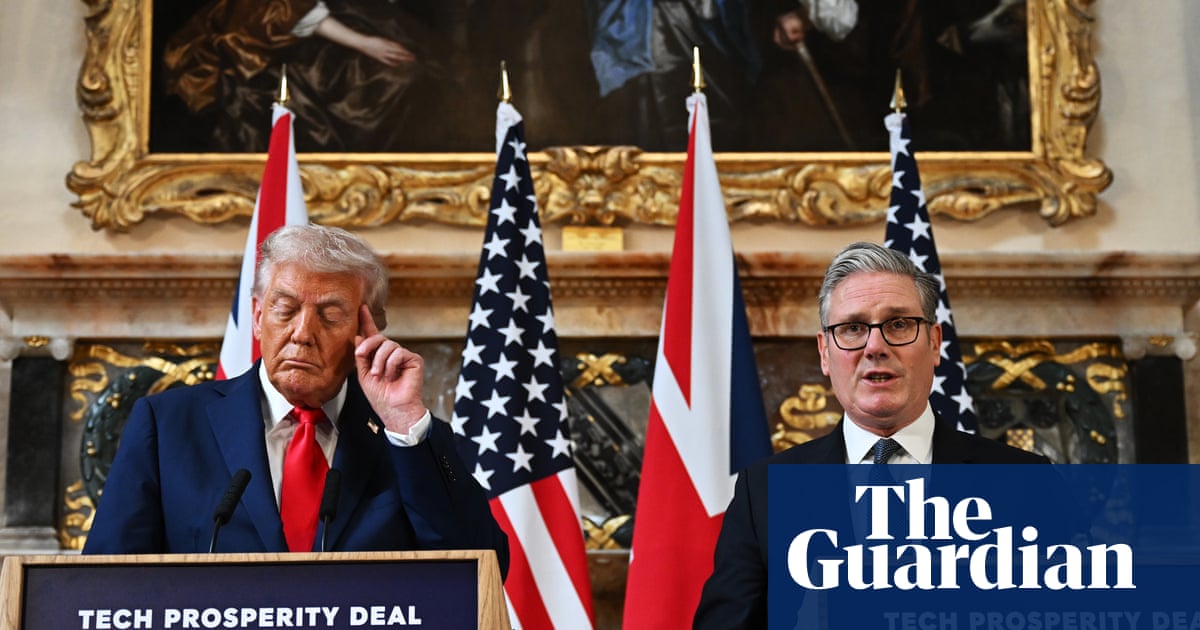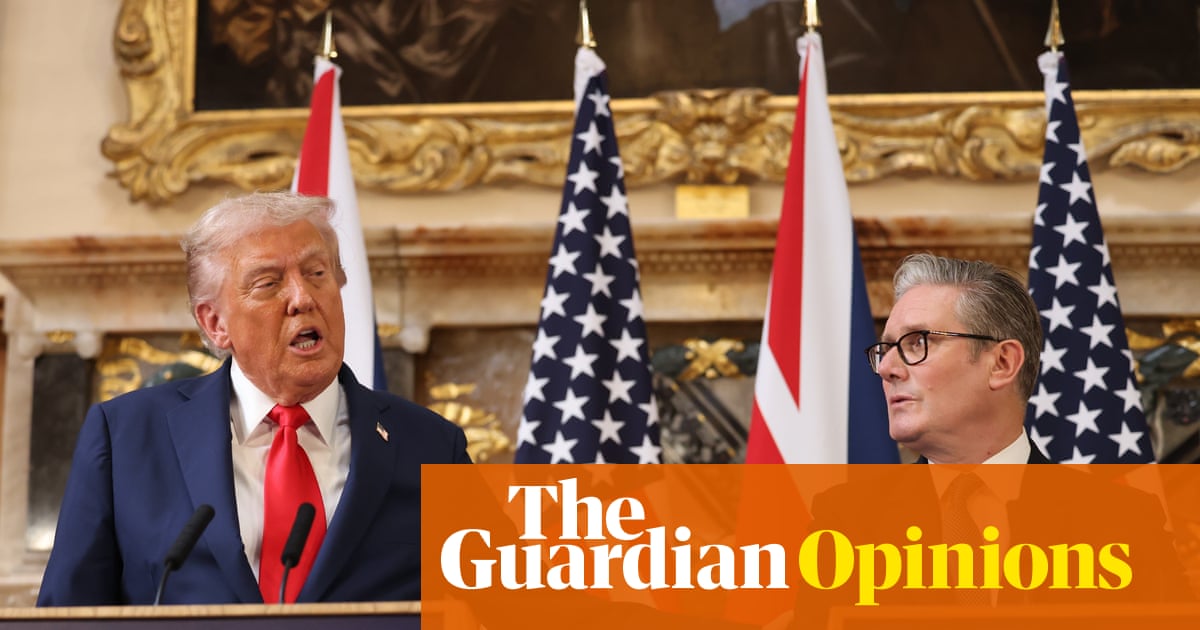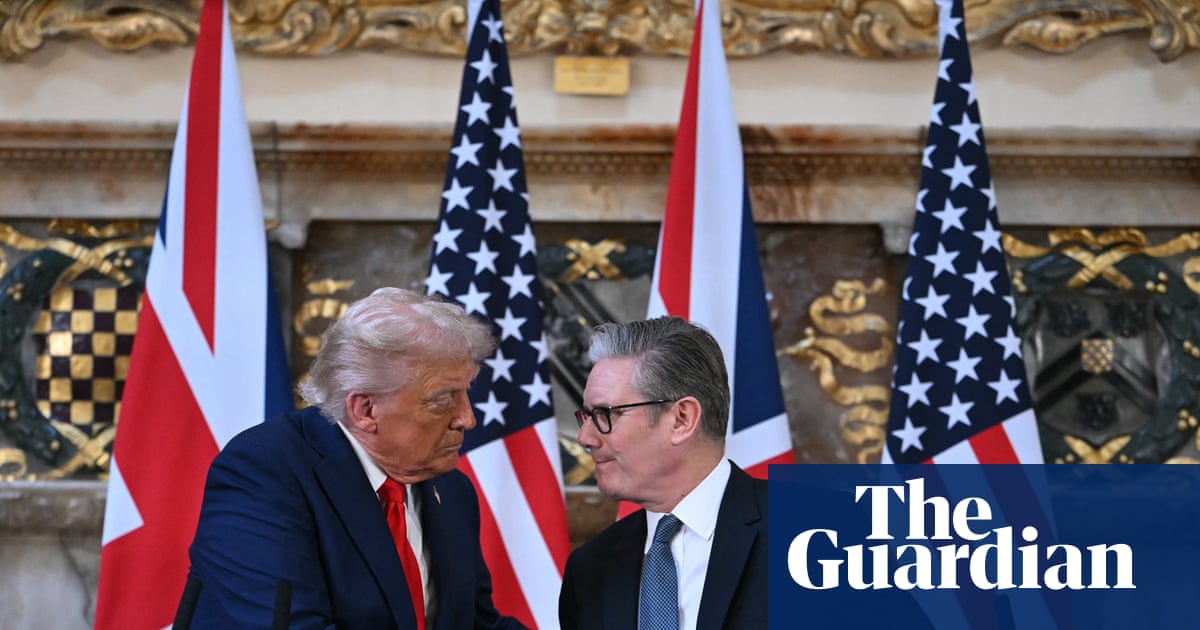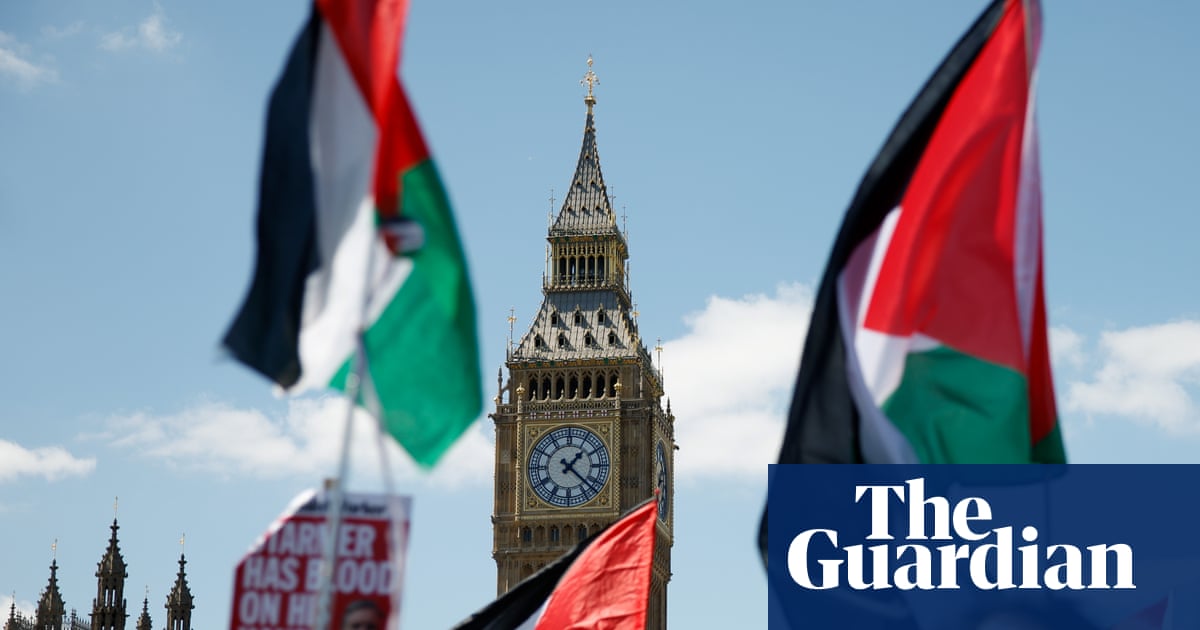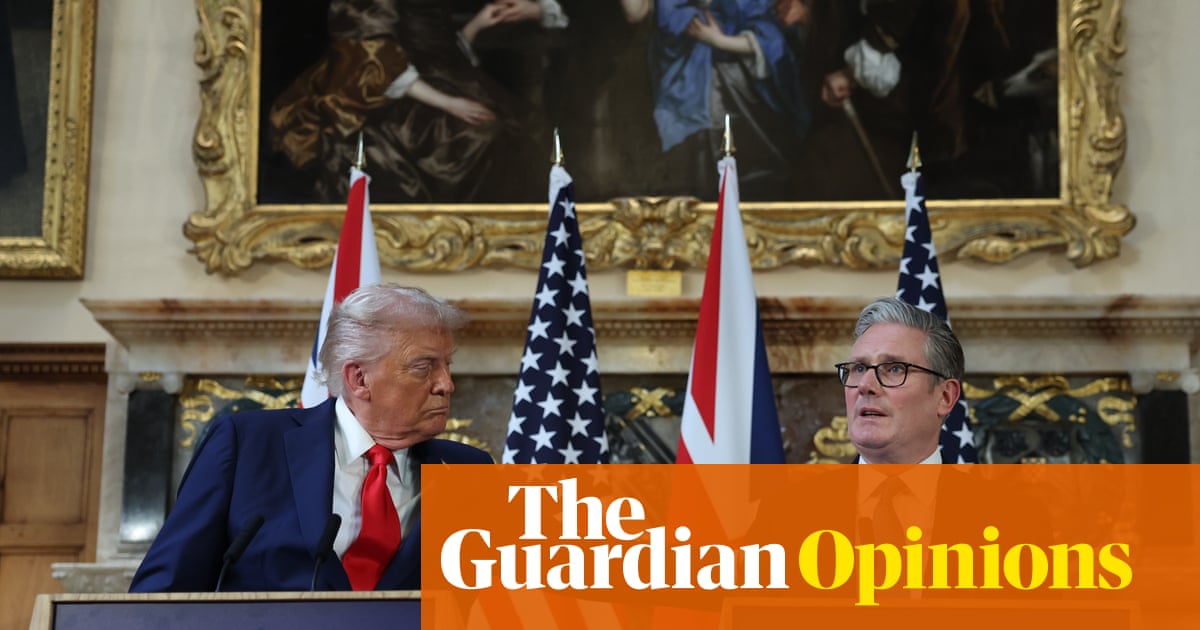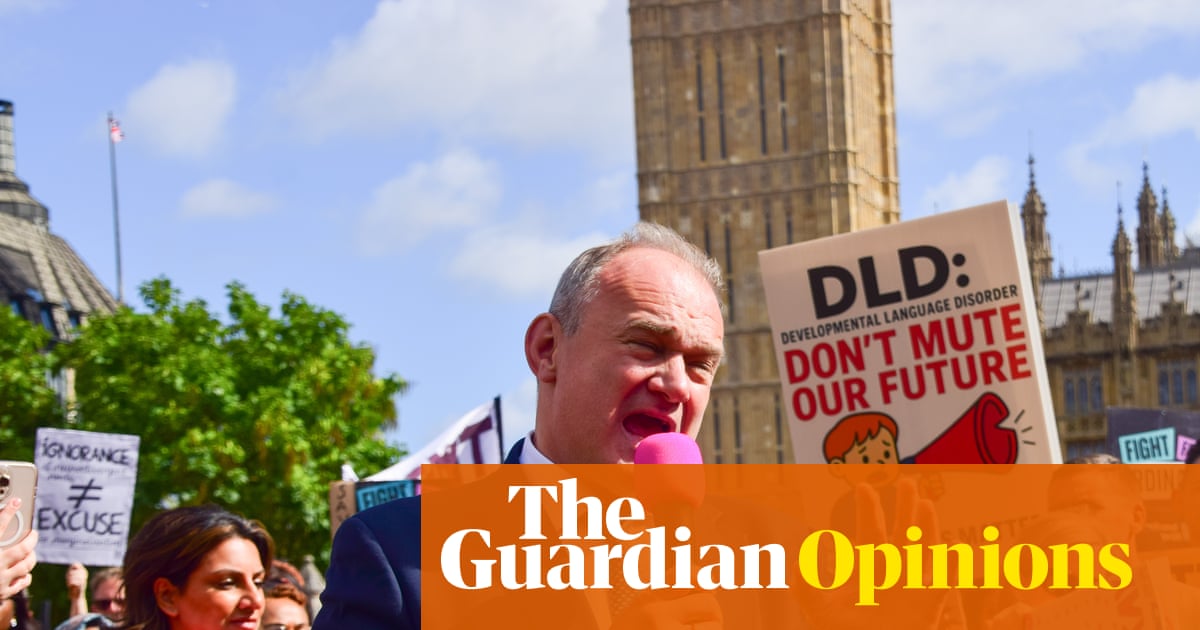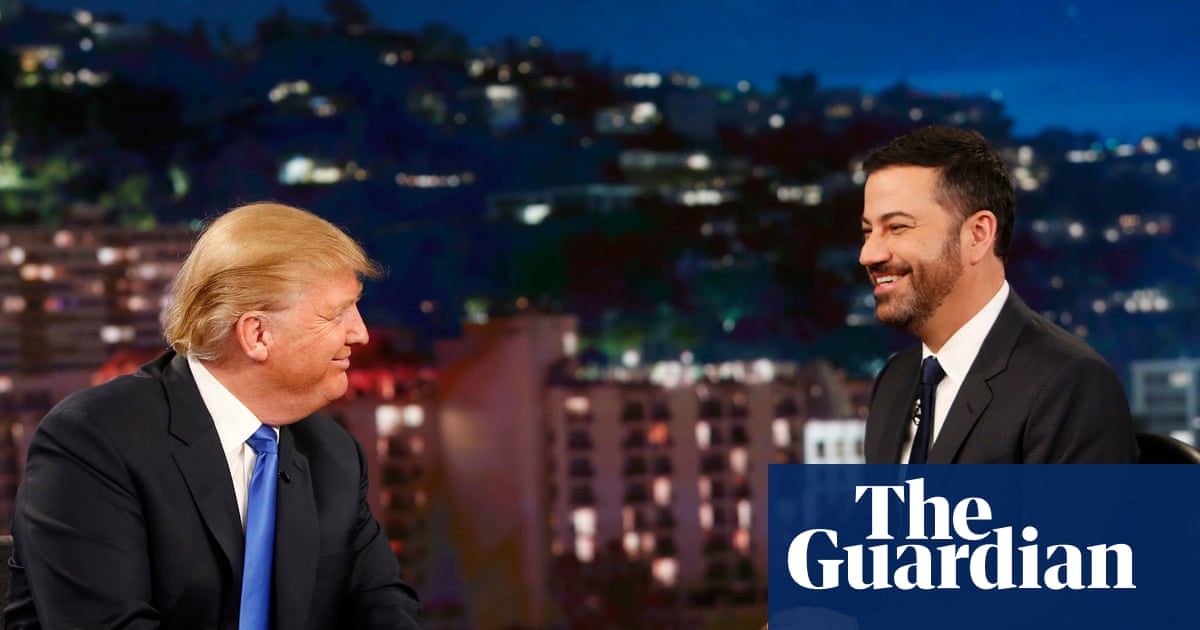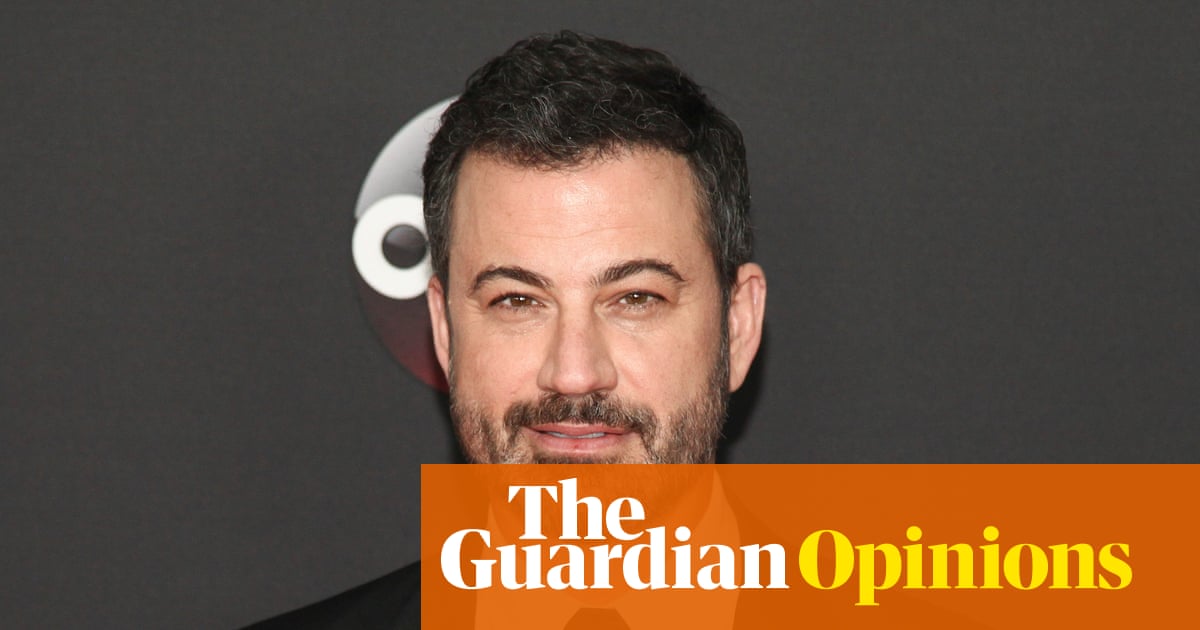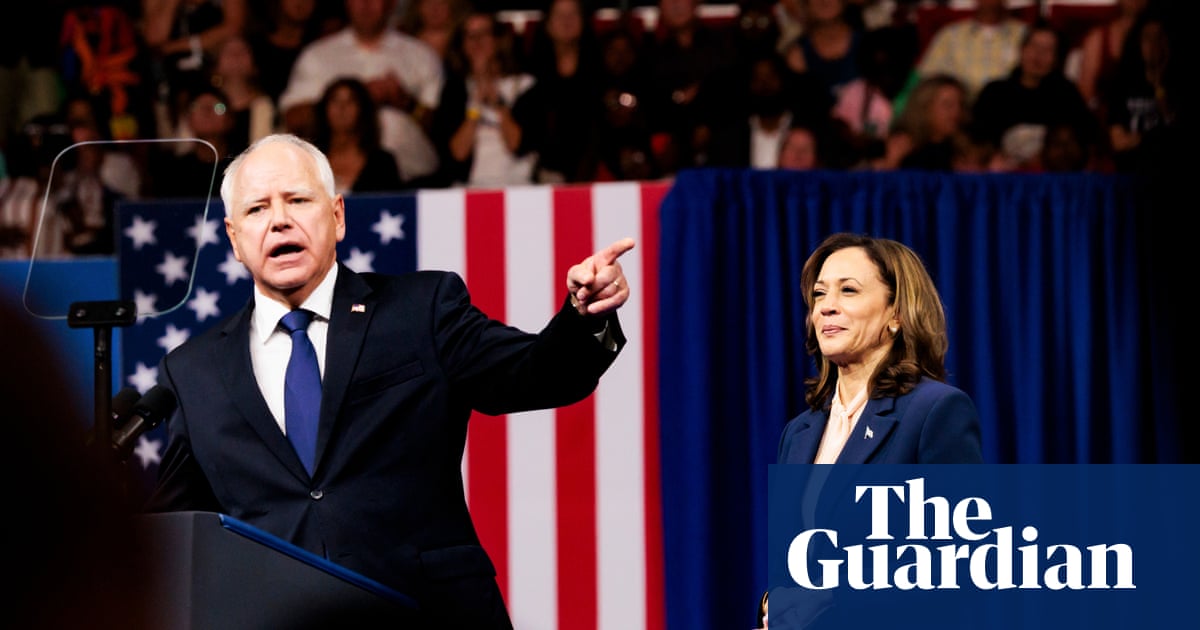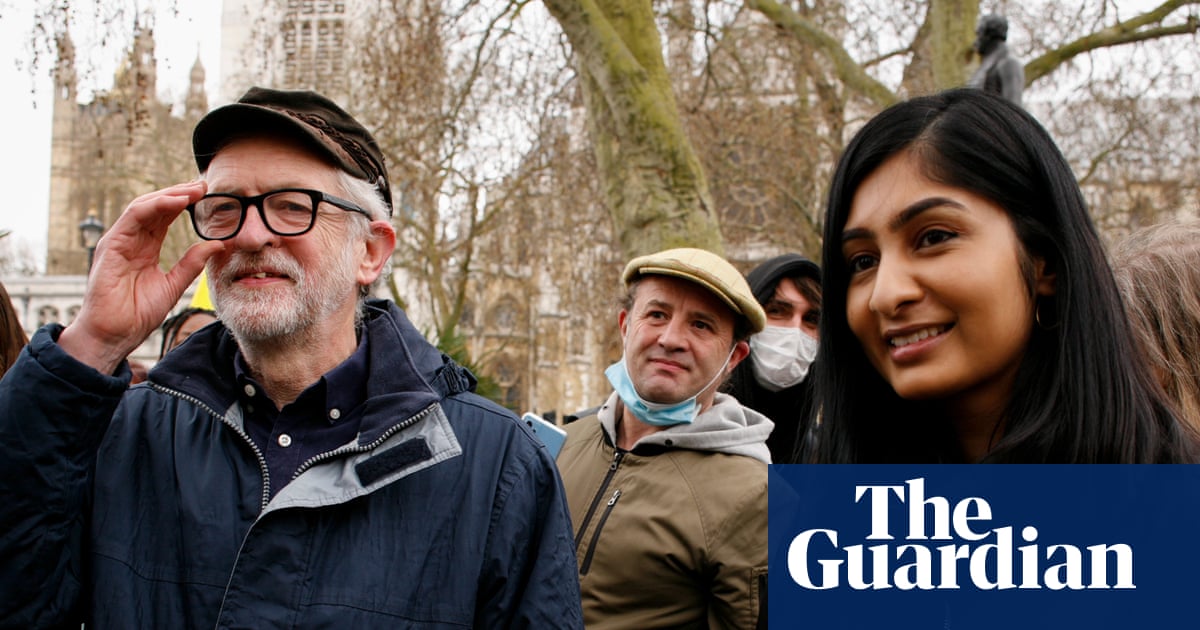Key events Show key events only Please turn on JavaScript to use this feature
G7 countries to hold talks on trade today

Lisa O'Carroll
The G7 advanced economies, Britain, Canada, France, Germany, Italy, Japan and the United States, are also due to hold separate talks on trade today.
German economy minister Katherina Reiche said yesterday, on the sidelines of OECD talks in Paris:
We need to come up with negotiated solutions as quickly as possible, because time is running out.
French trade minister Laurent Saint-Martin added:
We have to keep our cool and always show that the introduction of these tariffs is in no one’s interest.
Mexico will request an exemption from the higher tariff, economy minister Marcelo Ebrard said, arguing that it is unfair because the United States exports more steel to Mexico than it imports.
It makes no sense to put a tariff on a product in which you have a surplus.
Mexico is highly vulnerable to Trump’s trade wars because 80% of its exports go to the United States, its main trading partner.
On Tuesday, White House press secretary Karoline Leavitt confirmed the Trump administration sent letters to trading partners to push for offers by Wednesday as a deadline approached.
This underlines Trump’s use of tariffs as a negotiating tool.

Jasper Jolly
Steel companies had been considering whether to turn shipments around in the Mid-Atlantic to try and sell products in Europe, rather than pay 50% tariffs.
There were also questions over whether products immediately shipped back from the US would be liable.
Liam Bates, president for long products at Marcegaglia Stainless Sheffield, said the UK industry was relieved. He said “storm in a teacup springs to mind”.
However, he added that “this is still a wider issue as anything not exclusively UK is attracting 50%” tariffs. It “also does require this 0% deal is now done”.
US trade rep and EU trade commissioner to meet in Paris today

Lisa O'Carroll
Tariffs overshadow an OECD meeting in Paris as world economy ministers gather, with the European Union saying it “strongly regrets” the US decision to double tariffs on steel imports to 50%, a new duty effective as of today.
US trade representative Jamieson Greer and EU trade commissioner Maros Sefcovic are set to hold talks at 9am in Paris, with the bloc seeking to carve out its own deal.
The UK has already been exempted from the increase after a meeting between UK trade secretary Jonathan Reynolds and Greer.
Keir Starmer and Donald Trump agreed a tariff pact with 0% tariffs on steel and autos last month but there are concerns that the deal has not been legalised.
In their talks, Reynolds and Greer discussed a “shared desire to implement” the pact, including agreements on sectoral tariffs, as soon as possible, according to a UK readout.
But Trump’s latest salvo raises temperatures with various partners.
The EU has said it “strongly regrets” Trump’s plan to raise metals tariffs, cautioning that it “undermines ongoing efforts to reach a negotiated solution” with the United States.
Reynolds is in Brussels today to meet EU vice president Stéphane Séjourné and Ukrainian environment protection minister Svitlana Hrynchuk. Reynolds and Séjourné are due to hold a press conference in Brussels at 11.30am BST.
They are gathering to discuss critical raw materials but Trump’s tariffs are expected to be raised.
Brandauer boss warns of 'far reaching' uncertainty from tariffs
Uncertainty from tariffs is “quite far reaching” across industry, said Brandauer boss Rowan Crozier speaking on BBC radio 4’s Today programme:
Our customers are less confident in forward planning or ordering what they need. And bear in mind that the types of products we make, whether they’re from steel, copper or brass or some other metal, there are long lead times to our supply chain to actually procure the material, bring it into our factory, stamp the product, finish the product, and then ship it. If there’s delays or late placement of orders – they need the products. That’s not going away.
It does make things a little bit more nightmarish for us to actually plan, so we have to up the ante proactively, talking to our customers to secure those orders in a timely fashion, which gives us just another plate to spin as a manufacturer, and we have plenty.
Asked whether Brandauer’s customers in the United States are having to pay more for its products because of the increase in tariffs, Crozier said:
I think it’s a little bit early to say at the moment, we’ve actively engaged with all six of our customers that are in all corners of the States, they’re very much keen to maintain a working relationship with us, continue to order from us uninterruptedly, but they are still trying to understand what those tariffs actually mean in terms of cost to them.
We’re an advanced manufacturer, so there’s special equipment, there’s special skills, there’s this whole infrastructure that’s required to do what we do, in addition to procuring the right material to do it with. And there’s just not that foundation in the States, and it will take a long time to put that back in, to create that capacity. So there’s little choice for them at the moment, but to continue ordering.
Introduction: UK to be spared 50% steel and aluminium tariffs imposed by Trump on other countries
Good morning, and welcome to our rolling coverage of business, the financial markets and the world economy.
We’ve woken up to news that the UK will, for now, be spared the 50% steel and aluminium tariffs on shipments to the US which come into effect today.
In a statement, Donald Trump, said he had decided to “provide different treatment” to the UK after a trade agreement was struck between Washington and London last month.
Meanwhile, US levies on steel and aluminium imports from other countries are doubling to 50%.
Levies will remain at 25% for imports from Britain but the higher 50% rate could kick in from 9 July if the administration “determines that the United Kingdom has not complied with relevant aspects” of the deal.
The ongoing uncertainty is not good for businesses, said Rowan Crozier, chief executive of the Birmingham-based Brandauer, a metal pressing and stamping specialist that produces millions of parts that are sent around the world.
Talking about the UK’s exemption from the latest tariff hike, he said on BBC radio:
It’s good news because we’re not seeing the same import tariffs as all our competition all over the globe. However, the more damaging element of it is the uncertainty created. And that’s one thing that the Trump administration continues to do, is to create confusion with the hope of getting a deal. I think the government have done well to keep us out of it for now, but there’s a definite deadline that they’ve got to work to now to take away this uncertainty and get those tariffs to zero.
Asian stocks have risen, with South Korea’s Kospi rallying by 2.5% as the election victory of the liberal presidential candidate Lee Jae-myung raised hopes of swift economic stimulus.
Japan’s Nikkei added nearly 1% while the Taiwanese stock market jumped by 2.3% after technology stocks were boosted by US artificial intelligence giant Nvidia. It overtook Microsoft to become the world’s most valuable publicly traded company again yesterday, when its shares rose by 3%.
Stock futures are pointing to a modestly higher open in European markets.
Charu Chanana, chief investment strategist at Saxo in Singapore, told Reuters:
Markets may be desensitised to trade headlines but Trump-Xi talks remain in focus. A grand deal looks unlikely, yet any escalation could still spark a bout of risk aversion.
The Agenda
-
9am BST: Eurozone Services and composite PMIs final for May
-
9.30am BST: UK Services and composite PMIs final for May
-
2.45pm BST: Bank of Canada interest rate decision
-
3pm BST: US ISM Services PMI

 3 months ago
134
3 months ago
134






